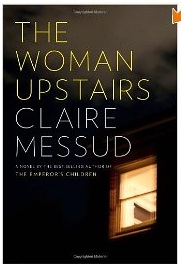Southern Cross the Dog: A Novel
Eight-year-old Robert Chatham has lost everything--friends,
family, home--to the fast waters of the Great Mississippi Flood of 1927. He
lights out across the country, a refugee seeking shelter with (and from) a
Homer-esque cast of misfits, hucksters, and ne’er-do-wells: the ladies of a
“hotel” of ill repute; a piano player whose talent for the blues matches his
seemingly supernatural powers of healing; a close-knit clan of trappers, living in a
swampland itself marked for flood behind the wall of a WPA dam. Wherever he
finds himself, Robert is gripped and propelled by his fear of a devil closing
in behind him. The book’s lineage is clear--the ghosts of O’Connor and Faulkner
stalk these pages--but pigeonholing Bill Cheng’s remarkable debut as a Southern
Gothic shortchanges the power and originality of its language, the artfulness
of its voice. Cheng has written a Bildungsroman of the South, a tale of a country
submerged again and again--literally and otherwise--under the high tides of the
20th century. --Jon Foro
Review
“With its evocative settings and rich McCarthyesque language, this
Southern gothic packs a punch like a mean drunk.” (Publishers Weekly (starred
review))
“Vividly imagined, frequently poetic. . . . It’s hard to resist the sweep of Southern history . . . the way [Cheng] makes the devil as palpably real as the natural world that he pervades. . . . A strong voice and a compelling achievement.” (Kirkus Reviews (starred review))
“Vividly imagined, frequently poetic. . . . It’s hard to resist the sweep of Southern history . . . the way [Cheng] makes the devil as palpably real as the natural world that he pervades. . . . A strong voice and a compelling achievement.” (Kirkus Reviews (starred review))
“Scintillating. . . . Unforgettable.” (Wall Street Journal)
“A novel in the great Southern tradition; think Cormac McCarthy or
a 21st-century Faulkner. . . . This book is a winner for lovers of plot; tough,
lyrical writing; history; and the trials of the deep South.” (Library Journal (starred
review))
“[A] brooding, spine-chilling southern odyssey. . . . Bold and
piercing. . . . [Cheng’s] darkly rhapsodic language is so imaginative and
highly charged that each word seems newly forged.” (Booklist (starred review))
“Lush and so very often poetic. . . . Southern Cross the Dog has large and small echoes of
masterful works, but we should not make any mistake—Cheng has carved out his
own creative and accomplished path.” (Edward P. Jones, Pulitzer Prize-winning
author of The Known World and All
Aunt Hagar's Children)
“An incredibly daring and powerful debut. Not only does Bill Cheng
set the language on fire in Southern
Cross the Dog, but he creates
a whole new territory of story-telling. . . . Cheng, almost literally, writes
out of his skin.” (Colum McCann, National Book Award-winning author of Let
the Great World Spin)
“Fantastic and beautifully written, Southern Cross the Dog is an epic and bluesy throwdown in the
Southern tradition.” (Nathan Englander, author of What
We Talk About When We Talk About Anne Frank)
“A vibrant world grows from the pages of Southern Cross the Dog and its dynamic mix of language and
place. Bill Cheng conjures history with precision and style in his exceptional
debut.” (Ravi Howard, author of Like Trees, Walking)
From the Back Cover
An epic odyssey in which a young man must choose between the lure
of the future and the claims of the past
With clouds looming ominously on the horizon, a group of children
play among the roots of the gnarled Bone Tree. Their games will be interrupted
by a merciless storm–bringing with it the Great Flood of 1927–but not before
Robert Chatham shares his first kiss with the beautiful young Dora. The flood
destroys their homes, disperses their families, and wrecks their innocence. But
for Robert, a boy whose family has already survived unspeakable pain, that
single kiss will sustain him for years to come.
Losing virtually everything in the storm's aftermath, Robert
embarks on a journey through the Mississippi hinterland–from a desperate refugee
camp to the fiery brothel Hotel Beau-Miel and into the state's fearsome swamp,
meeting piano-playing hustlers, well-intentioned whores, and a family of fierce
and wild fur trappers along the way. But trouble follows close on his heels,
fueling Robert's conviction that he's marked by the devil and nearly destroying
his will to survive. And just when he seems to shake off his demons, he's
forced to make an impossible choice that will test him as never before.
Teeming with language that voices both the savage beauty and the
complex humanity of the American South, Southern Cross the Dog is a tour de force of literary
imagination that heralds the arrival of a major new voice in fiction.
About the Author
 Bill Cheng received a BA in creative writing from Baruch College
and is a graduate of Hunter College's MFA program. Born and raised in Queens,
New York, he currently lives in Brooklyn with his wife. Southern
Cross the Dog is his
first novel.
Bill Cheng received a BA in creative writing from Baruch College
and is a graduate of Hunter College's MFA program. Born and raised in Queens,
New York, he currently lives in Brooklyn with his wife. Southern
Cross the Dog is his
first novel.
More
Information Here:




